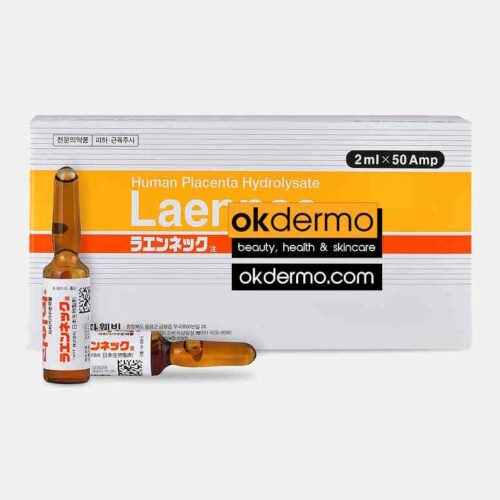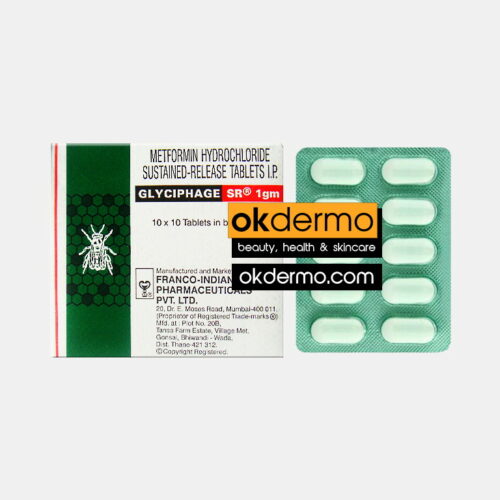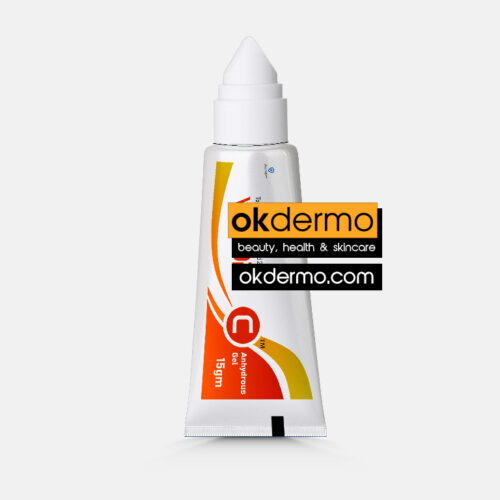Description
What is Siromus® Sirolimus Tablet?
Sirolimus, also known as Rapamycin and sold under the brand name Rapamune among others, is a macrolide compound that is used to coat coronary stents, prevent organ transplant rejection, treat a rare lung disease called lymphangioleiomyomatosis, and treat perivascular epithelioid cell tumor (PEComa). It has immunosuppressant functions in humans and is especially useful in preventing the rejection of kidney transplants. It is a mechanistic target of rapamycin kinase (mTOR) inhibitor that inhibits activation of T cells and B cells by reducing their sensitivity to interleukin-2 (IL-2). Siromus 1mg is an immunosuppressant. It works by suppressing your body’s immune response following the transplant of an organ (eg. liver, kidney, heart). This helps your body to accept the new organ as if it were your own.
This action is different from those of other immunosuppressants like cyclosporine and tacrolimus. Instead of slowing down the lymphocytes, those immunosuppressants work on the molecules themselves. Because of this difference, sirolimus can be combined with other immunosuppressants. The interaction of sirolimus and these other immunosuppressants can have a combined effect that is even more beneficial than taking them individually. You might hear your transplant doctor refer to this effect as “synergistic”.
Sirolimus, commonly known by its brand name Rapamune, is a medication used in medical therapy to prevent organ transplant rejection and treat certain medical conditions. It is classified as an immunosuppressive drug, meaning it suppresses the activity of the immune system. This property makes it an essential component of the drug regimen given to patients who have received an organ transplant to prevent their immune system from attacking and rejecting the transplanted organ.
Siromus 1mg Tablet is used for the prevention of organ rejection in transplant patients. It regulates the body’s immune response, so the body can accept the new organ. Siromus 1mg Tablet must be taken in a dose and duration as per the prescription. It can be taken with or without food but make sure to take it at about the same time every day. An overdose of this medicine may have serious side effects on the body.
Common side effects of this medicine include edema, increased blood lipid level, high blood pressure, increased level of creatinine, abdominal pain, diarrhea, headache, fever, urinary tract infection, anemia, nausea, joint pain, and thrombocytopenia. If any of the side effects persist or bother you, consult the doctor immediately. Inform the doctor immediately if you experience any allergic reactions such as rash, shortness of breath, coughing, swelling, etc.
Before taking this medicine, it is important to consult your doctor if you have any ongoing medication for any underlying disease. Pregnant and breastfeeding women must inform the doctor before the initiation of this treatment. During the treatment, your doctor may advise you for some laboratory tests to know the effects of the medicine on the body. If you notice signs of infection, any changes in the appearance or size of a mole, unusual growths or lumps, or unusual tiredness or weakness during the treatment, you must consult the doctor immediately.
Sirolimus is used together with other medicines to prevent the body from rejecting a transplanted kidney. It belongs to a group of medicines known as immunosuppressive agents. When a patient receives an organ transplant, the body’s white blood cells will try to get rid of (reject) the transplanted organ. Sirolimus works by preventing the white blood cells from getting rid of the transplanted organ.
Sirolimus is a very strong medicine. It can cause side effects that can be very serious, such as kidney problems. It may also reduce the body’s ability to fight infections. You and your doctor should talk about the benefits of this medicine as well as the risks. Sirolimus is also used to treat lymphangioleiomyomatosis, a rare lung disease that affects predominantly women of childbearing age.
In Prevention of kidney transplant rejection. Siromus 1mg Tablet is used with other medications to prevent kidney transplant rejection. Rejection usually happens due to an attack by the immune system of the person receiving the transplanted organ on the transplant itself, in people who are receiving kidney transplants. This medicine reduces the activity of a person’s immune system and prevents any such rejection
Drug Class: Sirolimus belongs to a class of drugs called mTOR (mammalian target of rapamycin) inhibitors. It specifically inhibits the activity of the mTOR protein, which plays a key role in regulating cell growth, proliferation, and immune responses.
Organ Transplantation: Sirolimus is commonly used in combination with other immunosuppressive drugs such as cyclosporine and corticosteroids to prevent organ rejection after kidney transplantation. It may also be used in liver and heart transplantation.
Lymphangioleiomyomatosis (LAM): Sirolimus has been approved for the treatment of LAM, a rare lung disease that affects mainly women and results in abnormal growth of smooth muscle cells in the lungs.
Off-label Uses: Sirolimus is also used off-label in certain cases to treat other conditions, including certain types of cancer and autoimmune diseases.
Mechanism of Action: Sirolimus exerts its effects by inhibiting the activity of mTOR, a protein kinase that regulates various cellular processes, including cell division, protein synthesis, and immune responses. By inhibiting mTOR, Sirolimus reduces the production of certain proteins that are involved in cell proliferation and inflammation, thereby suppressing the immune system’s response to foreign tissues and preventing organ rejection.
Dosage: Sirolimus is available in various strengths, including 1mg tablets. The dosage prescribed to patients may vary depending on factors such as the type of transplant, the patient’s weight, age, and other individual considerations. It is typically taken orally once daily, with or without food. The drug should be taken at the same time each day to maintain consistent blood levels.
Precautions and Side Effects:
As with any medication, Sirolimus has potential side effects and precautions that should be considered:
- The drug can suppress the immune system, increasing the risk of infections. Patients taking Sirolimus should avoid close contact with individuals who have active infections.
- Common side effects include mouth sores, diarrhea, abdominal pain, headache, high blood pressure, and high cholesterol levels.
- Sirolimus may cause an increase in blood sugar levels and lead to new-onset diabetes or worsen pre-existing diabetes.
- The drug can also affect liver and kidney function, so regular monitoring is essential.
- Sirolimus should not be used during pregnancy, as it may harm the unborn baby.
Drug Interactions: Sirolimus may interact with other medications, including certain antibiotics, antifungals, and antiviral drugs. Patients must inform their healthcare providers about all the medications they are taking to avoid potential interactions.
It’s important to note that the information provided here is a general overview of Sirolimus, and individual patient circumstances may vary. Patients should always follow their healthcare provider’s instructions and consult their doctor if they have any concerns about the drug’s usage or potential side effects.





























Reviews
There are no reviews yet.